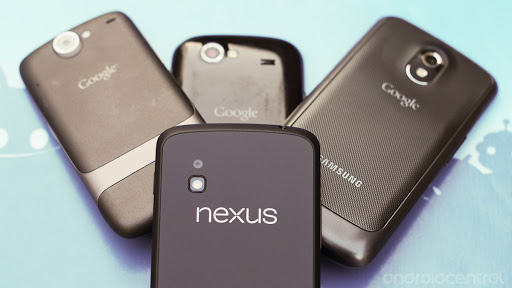Why I wouldn’t buy an Android device that isn’t part of the Nexus program
I would like to start by saying that I have been using a Samsung Galaxy GT-I9100 (S II) for almost two years now. While I appreciate Samsung for creating such a kickass device, which’s design seems very original, intuitive and creative, I found the OS quite lacking. So here, I’ll be very bluntly stating certain things which irritated (and continue irritating) me. I’m not writing this as an individual who mods devices nor as an individual who knows the nitty-gritty of Android, but as a well-informed consumer who wants certain things in a device and wants certain things out as well. I’ll also add that I have not written this to target any particular individual(s) and I would like to apologize in advance if anything I say is offensive to anyone. Also, you may find that I keep on ranting on and on about user-experience. That’s because I believe that any device should make me want to use it, rather than curse it. Moreover, at the end of the day I use my phone mostly to call, text or browse the net and I expect the device to make that memorable for me.
When it comes to technology, I’m a Utopian (or in simple words, an Idealist). Whenever I look out to buy anything related to technology, say a smartphone, I want it to be perfect in every aspect, namely, the feel and looks of the device, the user-interface, the intuitiveness in a device, etc. I confess that I was a naive consumer who (in a way) fell to Samsung’s promiscuous advertising. But thanks to a good friend of mine, my journey into the world of Android and modding was quite fun and informative. Fortunately/unfortunately, I have become averse to Android, and my blame is directly towards Samsung and Google alike.
Those who are into modding will know why stock Android is amazing, and those who aren’t should try their hands on a Nexus device (if you still haven’t). A Nexus device gives the purest Android experience and it is simply amazing. I’ll agree that Android’s UI was pretty bad until Gingerbread came out and it improved considerably only with Ice Cream Sandwich (ICS). I began modding my device a couple of weeks after I had purchased it. So, when Google released ICS, I got it within a couple of weeks (unlike Samsung’s updates which came months later). I found significant improvement (in terms of speed, precision, cleanliness, etc.) when Google went from GB to ICS. But when it came (pathetically late, I feel inclined to add) to the OS supplied by Samsung, ICS remained the same as GB, except for a few changes which weren’t all that significant. What I’m trying to say is that Google revamped its entire image with ICS, while Samsung didn’t even bother to notice and acknowledge them. I mean, GB to ICS was a major overall update and Samsung made a joke out of it (which wasn’t even funny, by the way.) This doesn’t just stick to Samsung, but applies to all Original Equipment Manufacturers (OEMs).
Somehow, I feel that there is an absence of a symbiotic relationship between Google and the OEMs. Although they are both dependent on each other for survival in the mobile device industry, there seem clear indications of a/many missing factor(s). When one takes a look at all the Nexus devices (smartphones) manufactured till date by different OEMs, (Nexus One by HTC, Nexus S and Galaxy Nexus by Samsung & Nexus 4 by LG), the hardware and design look brilliant, as opposed to the devices designed by the OEMs themselves. Also, as mentioned earlier, the OS is the best possible version of Android possibly available. Yet, the devices don’t sell to the extent that which is expected of them. I wouldn’t put all the blame on the OEMs since it is justifiable that they have their own priority of selling devices designed and manufactured by them, rather than selling a Google made phone. From the perspective of an organization which aims to increase its profits, such a move is totally called for. But then there is a viewpoint of technology-appreciation which doesn’t really subscribe to such a move. Google spends quite a lot of time and energy in designing a device as well as its OS so that a consumer gets the best possible experience and all that these OEMs do is add quite a load of garbage in order to show that they are different from one another. If the OEMs add or delete something which makes the user-experience better than the one offered by the Stock Android, it would be a different story altogether. But sadly, it isn’t the case. Whenever I take a look at the Custom Android skins offered by different OEMs, I somehow find them filled more of “Gimmicks” than of usability; gimmicks without which the device would probably function as usual, or maybe even better. Unfortunately, the fact remains that these very gimmicks are used to attract naive consumers with the false belief that the usability of the device has been improved.
I’m quite sure that people will get very agitated upon reading this, for me being too blunt on the OEMs. But guys, just think for once – whenever Google releases an update, when do the non-Nexus users get it? Also, do you really think that the update was worth the wait – in time and energy? When you look at the big picture, you can see Google trying to create an ecosystem with all the technology its disposal. And then there are OEMs trying to create their individual ecosystems, within Google’s ecosystem. I mean, you see how Microsoft tries to show how their WP8 works well with Windows 8 and there’s Apple showing how good iOS is when used with OS X and then there’s Android. I really don’t see any integration of devices when it comes to Android. When the battle for mobile technology is on the basis of ecosystem, somehow, Google fails to make it there, although its users are still expanding. It also shows leniency on Google’s part for not keeping under control how their OS is used.
People reading this will throw all kinds of arguments at me saying that Android is open-source and that freedom is necessary, blah blah blah. But, is restriction on freedom really such a bad thing when it helps an individual on the whole? Just imagine for a moment that all the OEMs ran stock OS and that Google controlled the specifications a Google running device could have. Everyone would get their updates at the same time. Apps wouldn’t lag on one device and run smoothly on the other. Developers could focus on improving their apps rather than wasting time on porting it to ‘n’ number of devices. The OEMs would be competing on the basis of adding extra features to the hardware or making the hardware better than others. Is that really such a bad thing? At the very least, I subscribe to such an idea. For me, technology should enable one to do anything (and everything) easily. And if there is something which helps me do that, freedom or not, open or closed, I’ll support it whole-heartedly. One can also argue that if I have such a beef with OEMs, I can always mod the device, But as I said earlier, I’m writing this article as an informed consumer and not as a modder. Also, if I have to alter the OS for my user-experience to be better, that kind of defeats the purpose of buying the device, doesn’t it? But that’s another story altogether.
Anyway, that’s why I wouldn’t want to buy an Android running device which isn’t part of the Nexus program. But hey, that’s my opinion and you’re free to disagree with it. I just hope that you don’t judge me based on what I wrote earlier, because I expect you to respect my choices and preferences. My objective to write this was not just to highlight the drawbacks of OEMs in Android, but to educate an average naive consumer, who usually falls prey to promiscuous advertising done by the OEMs.

















One Response to Why I wouldn’t buy an Android device that isn’t part of the Nexus program